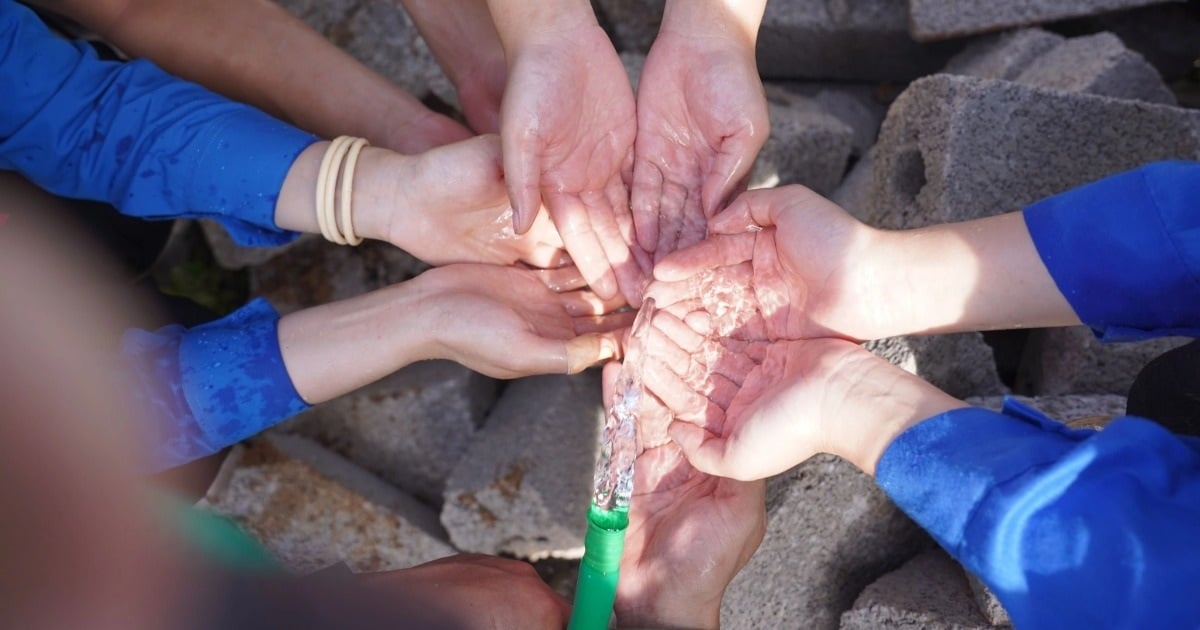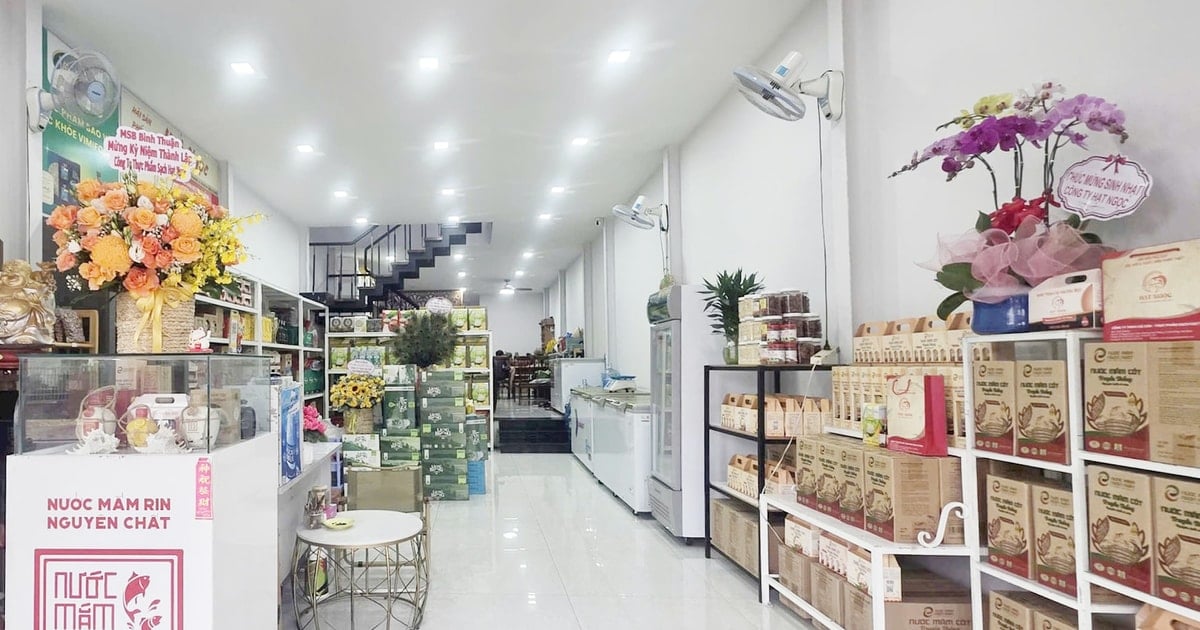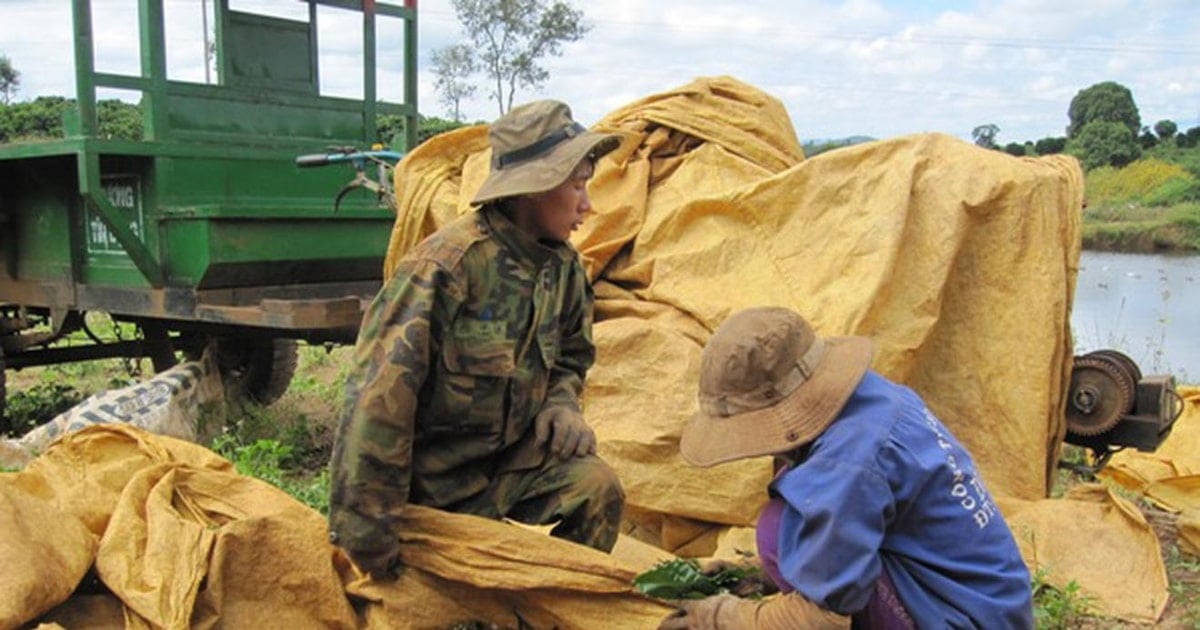Ms. Nguyen Thuy Kieu Phuong, History - Geography teacher of Nguyen Du Secondary School (District 1, Ho Chi Minh City) started the new lesson "Geographical discoveries" with the warm-up activity - Look at the picture and guess the name.
The classroom atmosphere was lively, as hands were continuously raised to volunteer to answer. This was a way to help students systematize the knowledge they had learned before.
"The first 15 minutes of class are no longer tense and stressful. I want students to feel comfortable before starting a new subject. In all subjects, teachers always try to find game activities, spin the number box, guess the background or relay, to help students warm up in the gentlest way before starting a new lesson," Ms. Phuong shared.

Teachers at Nguyen Du Secondary School (District 1) let students warm up with the activity - Look at the picture and guess the name - before starting the new lesson. (Illustration photo)
According to Ms. Kieu Phuong, in fact, students have been familiar with this method for a long time, not just now. Nguyen Du Secondary School always builds innovative learning methods according to regulations and the 2018 General Education Program, building a happy school and happy class time.
Ms. Phuong added that in the past, teachers often applied the practice of reviewing lessons before class. However, for her, after finishing a new lesson, she will have students sketch a mind map to reinforce the last lesson.
"After each lesson, I often let the students review the results they have learned to see how well they have grasped the knowledge today. Sketching a mind map helps them focus during class to listen and memorize, so they will remember for a long time. In fact, in the 2022-2023 school year, the 6th grade had a 95% rate of good and excellent students, and they were all interested in this innovative method of the teacher," said Ms. Phuong.
Most students believe that changing the form of testing at the beginning of class creates a sense of excitement, reduces anxiety and helps them remember knowledge longer.
Vu Dang Khoa, a student of class 7/1 at Nguyen Du Secondary School, said: " I find the teacher's way of entering the class very interesting, creative and comfortable. The beginning of class is no longer as stressful as before, and I can also go to bed earlier at night instead of having to stay up late to memorize and recite the lesson tomorrow morning."
Mr. Dang Huu Tri, Head of the Math Group at Nguyen Du Secondary School (District 1) said that currently, schools are teaching with the goal of building happy schools and happy class hours.
“Every day students go to school must be an exciting and joyful day. We must make them look forward to going to school, not worry or fear,” Mr. Tri emphasized.
According to Mr. Tri, in all subjects, the school applies warm-up before class. In particular, Math will be tested by assigning students to create learning products that apply knowledge such as designing a protractor. After that, students will participate in experiential activities outside the school with the task of using their products to measure height in parks.
“Innovative teaching methods have been applied for a long time. In fact, teachers check their students’ answers to see if they have memorized the knowledge so that they can apply it to their exercises and later apply it to their lives. Currently, teachers also need to change according to the new educational goals, and should not apply old methods that cause anxiety for students,” said Mr. Tri.

Nguyen Du Secondary School students in History - Geography class.
According to Mr. Nguyen Phan Nhat Tan, a Math teacher at Huynh Khuong Ninh Secondary School (District 1), the practice of randomly checking for memorization at the beginning of class has been implemented for a long time. Accordingly, teachers will have different forms of assessment and students will be informed in advance.
Mr. Tan said that with the nature of Math, which requires learning formulas and memorizing them to do exercises, he often lets students do practical model exercises. Thus, to do well, students must definitely memorize the formulas. In addition, many other colleagues have also innovated knowledge testing methods such as making products, doing practical exercises, group presentations, etc.
According to Mr. Tan, currently, learning assessment follows new regulations, so some teachers may still ask questions at the beginning of class to see if students have memorized the formulas, not to see it as a way to get points.
Sharing the same opinion, Mr. Ly Duc Thanh, Deputy Director of Fudubank Center in Ho Chi Minh City (specializing in skills), said that he does not encourage memorizing lessons to recite.
"In my opinion, there are still some teachers who use the form of returning homework to bully students and force them to go to school, which will be very disadvantageous for them," said Mr. Thanh.
Mr. Thanh added that the goal of teaching now is to inspire, to make students interested in the subject, and naturally students will be self-motivated to study that subject.
“In the past, students’ self-study awareness and learning methods were not well-formed, so we had to apply such structured methods to help students become more aware of their studies. However, teachers need to change their teaching methods and knowledge testing methods to be more flexible to avoid putting pressure on students,” Mr. Thanh emphasized.
On September 12, at the conference to summarize the 2022-2023 school year and deploy tasks for the 2023-2024 school year, Mr. Nguyen Van Hieu, Director of Ho Chi Minh City Department of Education and Training, said that there is still a situation where teachers suddenly call students to answer questions at the beginning of the class. This will unintentionally put pressure on students.
Mr. Hieu emphasized that the form and quality of teaching play an important role in building a happy school, where students come to school happily and confidently. Teachers can start the lesson in a gentle and lively way to help students enjoy and be excited about the lesson.
Lam Ngoc
Source






![[Photo] General Secretary To Lam attends the 80th anniversary of Vietnam's diplomacy](https://vstatic.vietnam.vn/vietnam/resource/IMAGE/2025/8/25/3dc715efdbf74937b6fe8072bac5cb30)



































































































Comment (0)